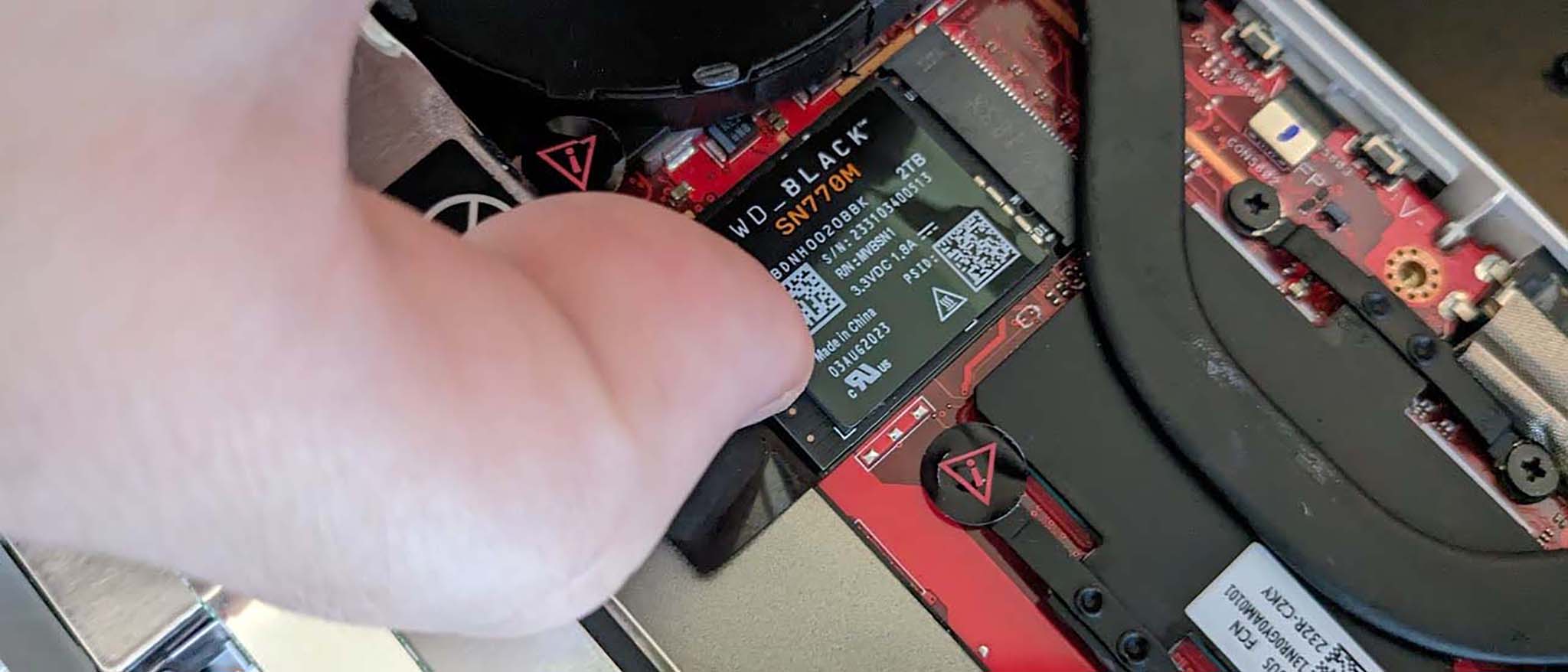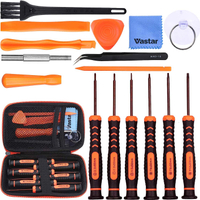Windows Central Verdict
The WD_Black SN770M internal SSD offers faster read and write speeds to help gaming handhelds like Steam Deck and ASUS ROG Ally perform more efficiently. It's easy to install and provides more room than the original ROG Ally SSD. Considering that the ROG Ally can cause microSD card malfunctions, installing this WD_Black is the best way to increase handheld storage. Plus, choosing between 1TB or 2TB makes it easier to find something within your preferred price range.
Pros
- +
Faster read and write speeds
- +
More space for game files
- +
Easy to install
- +
Superior alternative to microSD cards
Cons
- -
Expensive
- -
External SSDs can provide more space
Why you can trust Windows Central
I've absolutely loved my ROG Ally ever since I first got it, but there's no denying that the limited 512GB SSD it comes with doesn't provide a whole lot of room for my game files.
I can't even tell you how much time I've spent deleting and rearranging data on my ROG Ally's original SSD in order to make way for new games. It's tedious and takes away from what I actually want to be doing with the system — playing my favorite titles.
That's why I was so excited when I saw that Western Digital had released a 1TB and 2TB internal SSD specifically marketed for Steam Deck and ROG Ally. Ever since I installed the 2TB version into my ROG Ally, the gaming handheld has provided a much better gaming experience.
Disclaimer: This review was made possible thanks to a review unit provided by Western Digital. The company did not see the contents of this review before publishing.
WD_Black SN770M: A breeze to install
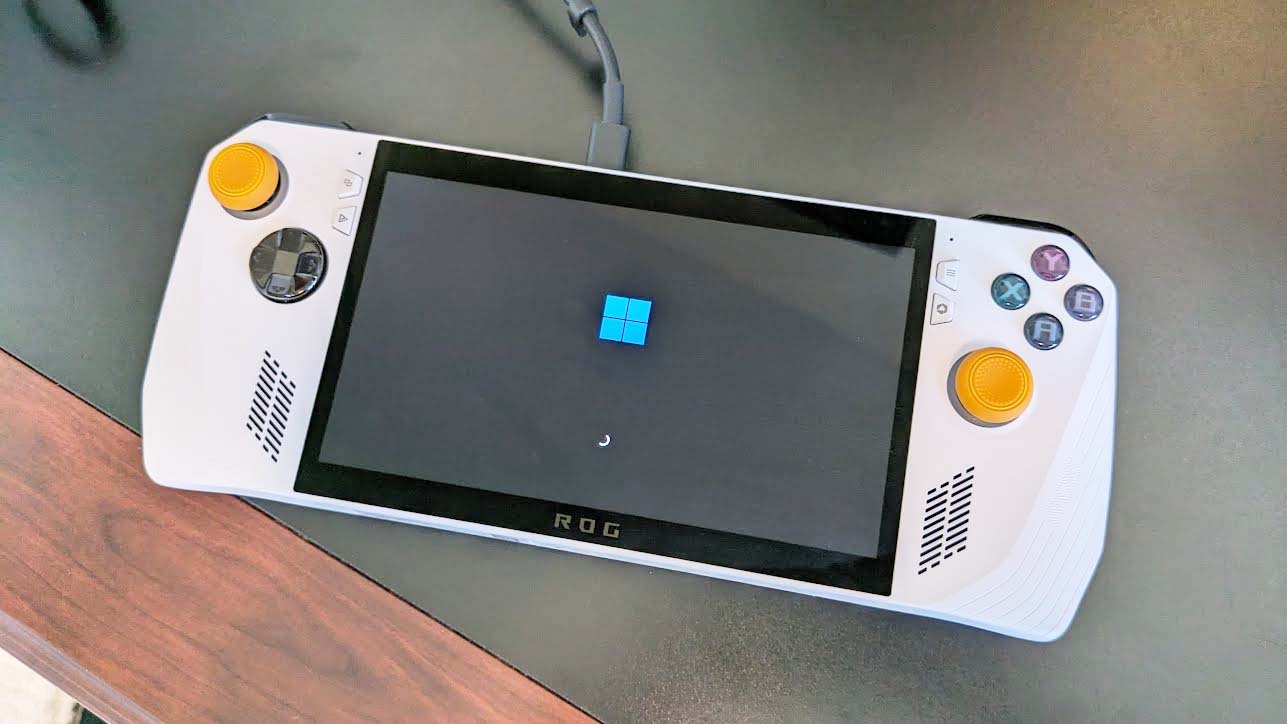
When I wrote my ROG Ally Z1 Extreme review, I was impressed by the gaming handheld's performance, control layout, and setting customization. Now that I've swapped SSDs, I'm also impressed by how straightforward ASUS ROG made it to upgrade specific internal components.
As you can see from my guides on how to upgrade an ROG Ally SSD and how to upgrade a Steam Deck SSD, removing the original 512GB SSD from the ROG Ally and replacing it with the WD_Black SN770M SSD is extremely easy. Of course, it helped that I had my gaming handheld screwdriver set, which comes with a plastic pick for prying open casing. So, you'll want to have that or something similar when you do the process yourself.
Vastar 17pcs Screwdriver Set | See at Amazon
This handy set comes with six magnetic tip screwdrivers, ideal for working with various gaming handheld devices. There are also tweezers and a plastic triangle casing opener to help you interact with specific components or to help open casings more easily.
The simple SSD swap is partially thanks to Western Digital for producing an excellent SSD shape that fits perfectly into the gaming handheld's SSD slot. Meanwhile, ASUS ROG also provides convenient Cloud Recovery with a clean install of Windows 11 and various ASUS/ROG programs, which adds even more convenience to SSD upgrading. Just note that your Ally must still be under warranty to take advantage of ASUS Cloud Recovery.
On another note, Western Digital specifically markets the SN770M SSD for Steam Deck and ROG Ally. It's possible that it could also work with Legion Go, but I haven't been able to verify this yet.
WD_Black SN770M: Increased speeds and extra storage
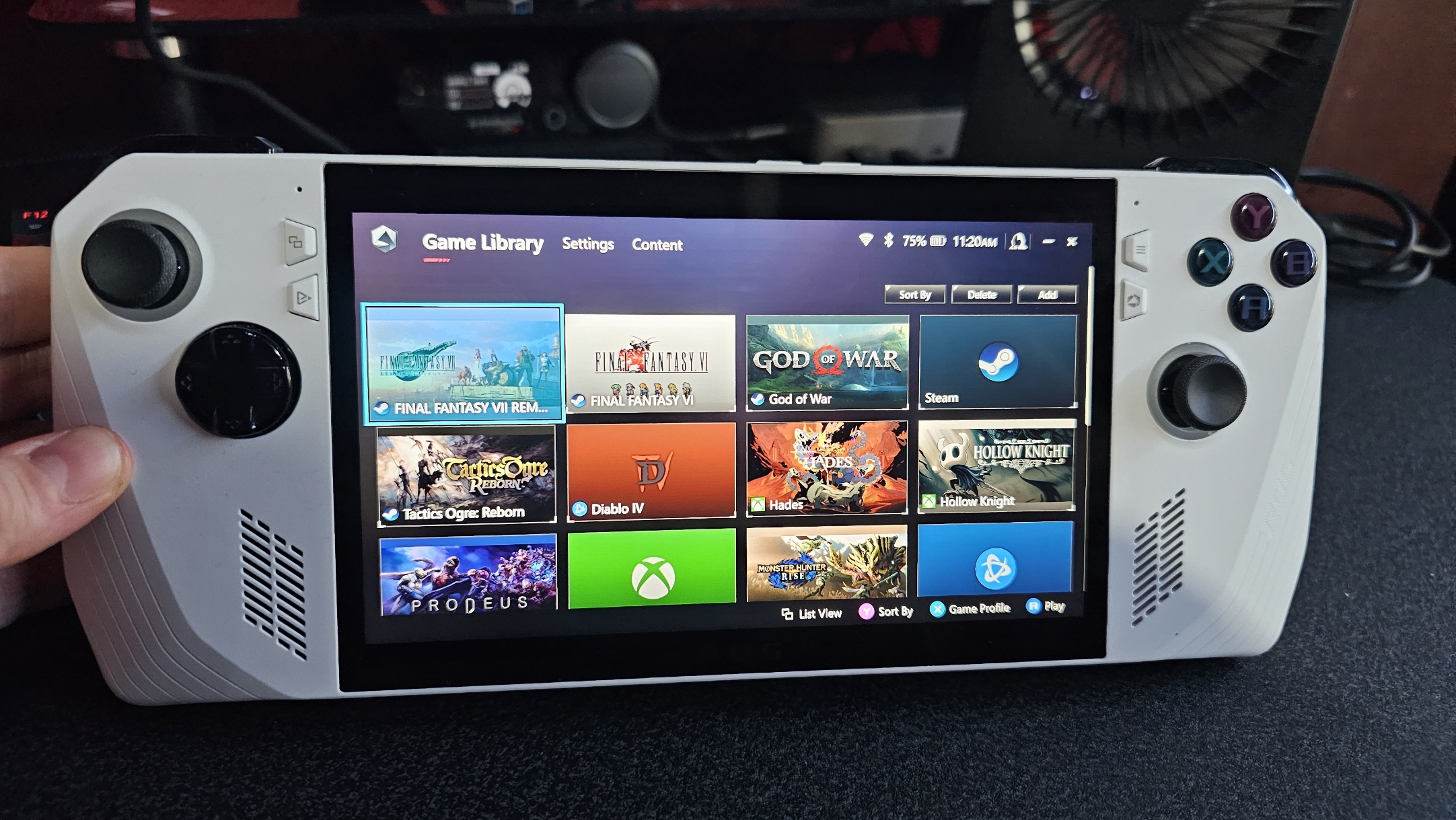
I don't even know how many hours I've put on my ROG Ally since I first got it, but it's become one of my main go-to gaming devices. Still, at first, one of my biggest points of frustration revolved around game storage space. The 512GB original SSD isn't conducive to an extensive game library. After installing just three large games on my ROG Ally (Cyberpunk 2077, Hogwarts Legacy, and Baldur's Gate 3), I found myself out of space.
I often had to take the tedious time of uninstalling one of my games to make way for another one. Even then, sometimes large game updates were too big and also required me to uninstall a game to allow the process to continue. It grew to be a regular and annoying task. True, I could have used a microSD card to increase storage, but ever since I learned about the ROG Ally overheating issue that can cause microSD cards to malfunction, I've been averse to using storage cards on the handheld.
But now that I've put a 2TB WD_BLACK SN770M SSD into my ROG Ally, I've been able to install several more titles without rearranging any existing game files. It's a huge relief. I'll still have to rearrange game files down the line, but it won't be nearly as often going forward.

On top of that, the 2TB WD_BLACK SN770M SSD offers faster reading and writing speeds over the original ROG Ally SSD to help the handheld work more efficiently. For those who might not know, the faster an SSD's read and write speeds, the smoother the graphical performance tends to be. That's because an SSD helps determine the quickness of load times, file saves, file loads, and even how well scene transitions in games are carried out.
In my CrystalDiskMark benchmark testing, the ROG Ally's original SSD produced a read speed of 4,303 MB/s and a write speed of 1,840 MB/s. Unsurprisingly, WD_BLACK SN770M outperformed it by producing a better read speed of 5,278 MB/s and a vastly improved write speed of 4,817 MB/s.
These results aren't surprising, given that systems tend to function better when they aren't constantly on the verge of running out of storage like my ROG Ally used to be when it only had a 512GB SSD. At any rate, it shows how advantageous the WD_Black SN770M SSD is.
WD_Black SN770M: Competition
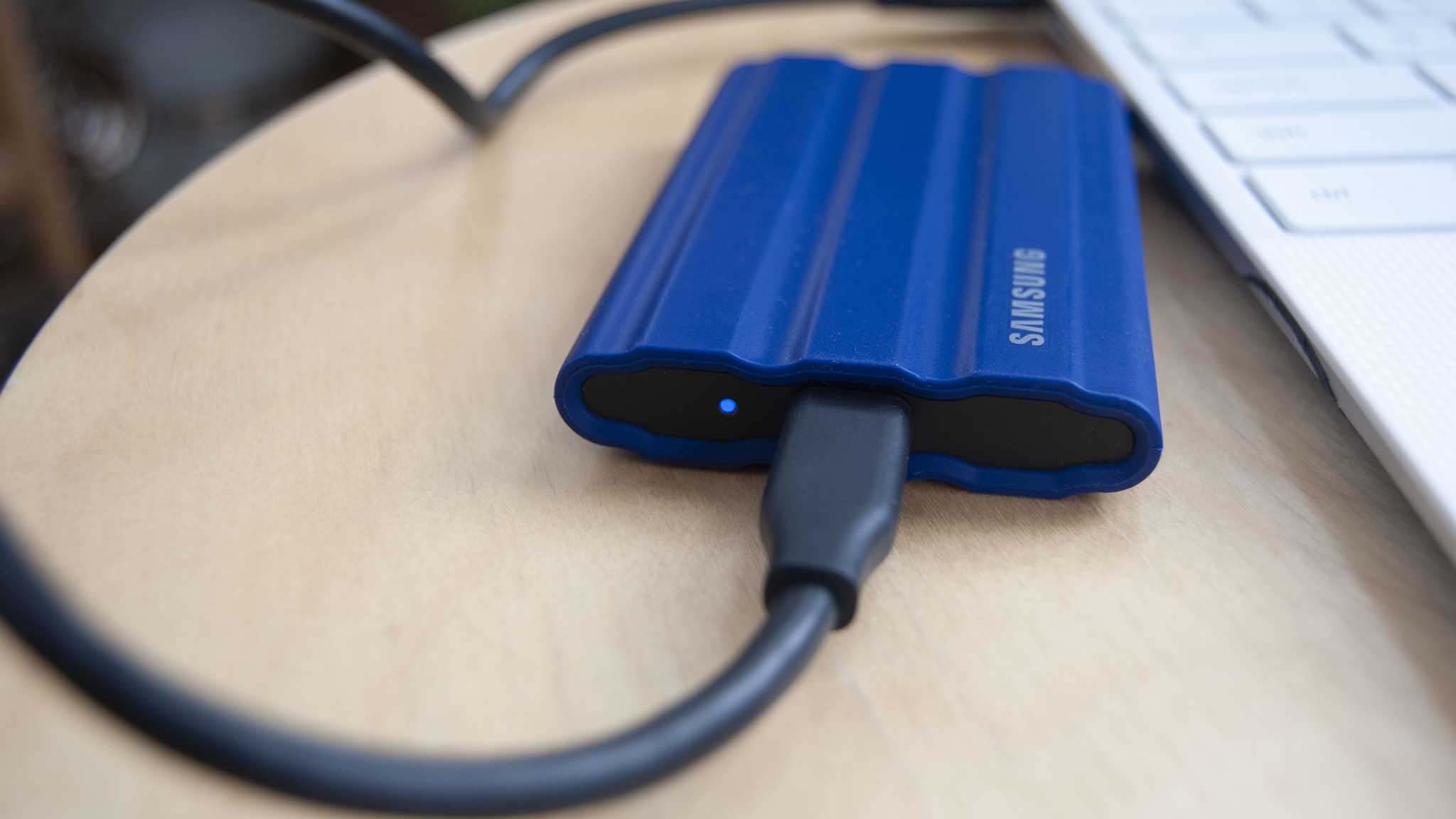
When it comes to internal SSDs, the best option for gaming handhelds really is the WD_BLACK SN770M since it's reliable and the correct shape for the job. However, there's also the option of using external SSDs with an ROG Ally, Steam Deck, or Legion Go.
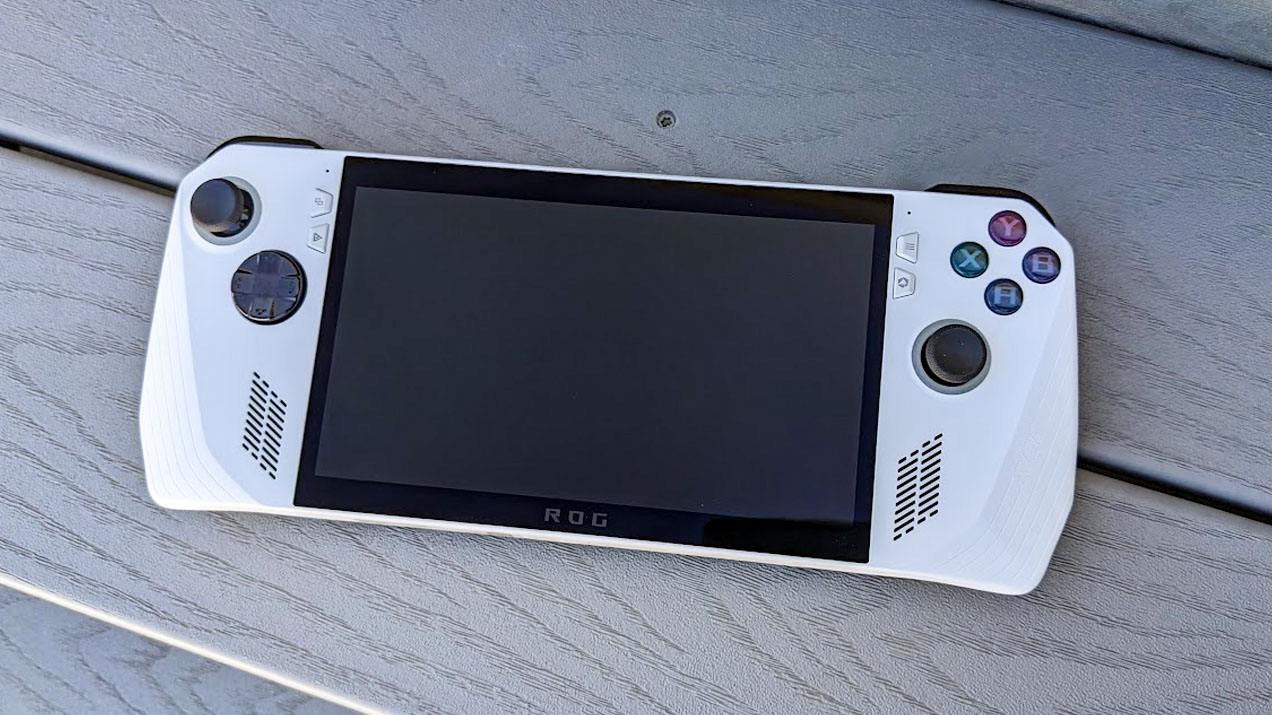
- ROG Ally accessories
- ROG Ally battery packs
- ROG Ally games and optimization
- ROG Ally screen protectors
- Ways to improve ROG Ally battery
Compatible external SSDs can come in larger capacities than internal SSDs to provide even more game space. However, they tend to be more expensive and clunky to use since they must be connected to gaming handhelds directly via USB-C ports. Additionally, if you want your ROG Ally or Steam Deck to charge up while being connected to an external SSD, then you'll need to use a reliable docking station with USB ports. One such option can be viewed in our Syntech 6-in-1 docking station review.
As far as a suitable external SSD goes, I recommend taking a look at our Samsung T7 Shield review. These are solid external SSDs available in 1TB, 2TB, or 4TB capacities, and they connect to other devices via USB-C. Additionally, they are available in black, blue, or beige, so you can choose the color you like best.
WD_Black SN770M: Should you buy it?
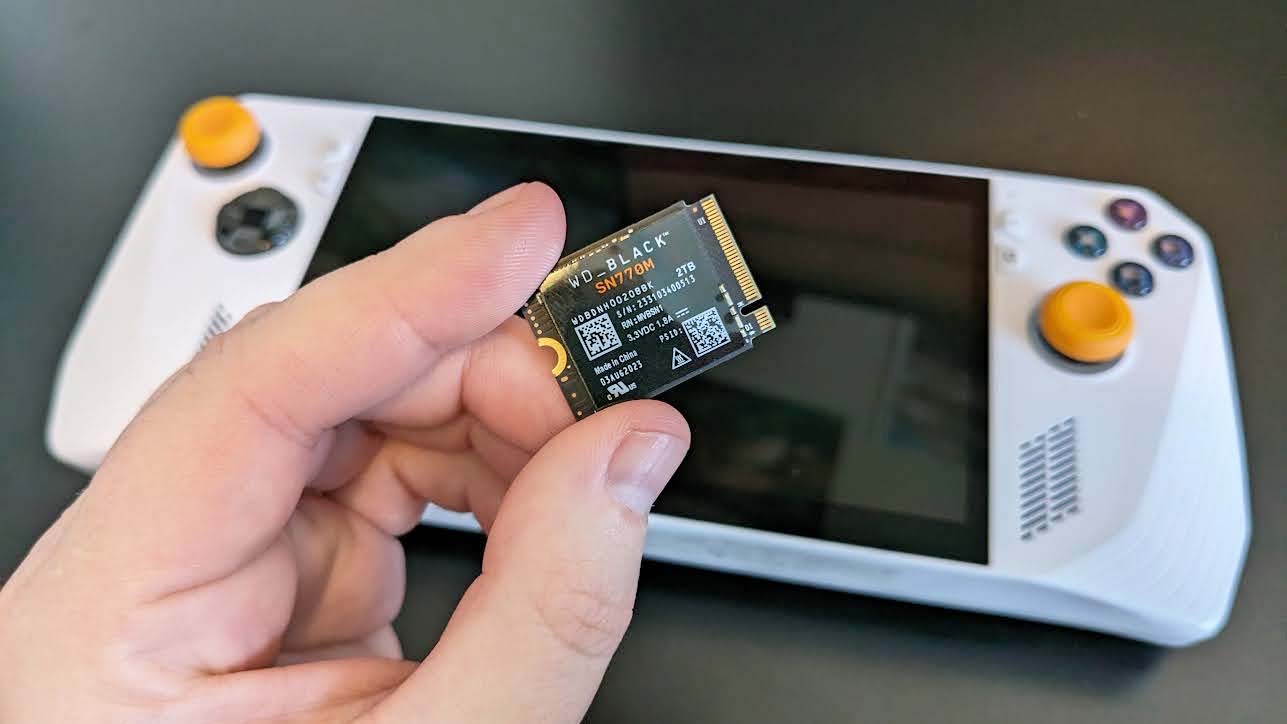
You should buy this if...
✅ You play a lot of games on ROG Ally or Steam Deck
Giving yourself larger internal SSD storage allows the gaming handheld to work better while also giving you more room for games. That way, you don't have to uninstall or rearrange data as often.
❌ You'd prefer to have an external SSD with an even larger capacity
External SSDs don't require any installation, and they are available in larger capacities. The trade-off is that they often do cost more, though.
If you're the owner of a Steam Deck or ROG Ally, then you absolutely should consider upgrading to a WD_BLACK SN770M internal SSD. This upgrade once more proves that Western Digital is a reliable manufacturer that produces extremely well-made products. You'll have more game space, so you don't have to do the uninstall dance nearly as much, and you'll get improved read and write speeds in the process.
The fact that the ROG Ally's design makes it easy to upgrade SSDs is yet another reason why gaming handheld owners should take the time to make the swap. Just be careful while doing so and make use of ASUS Cloud Recovery. You'll be grateful to play with the new WD_BLACK SN770M.
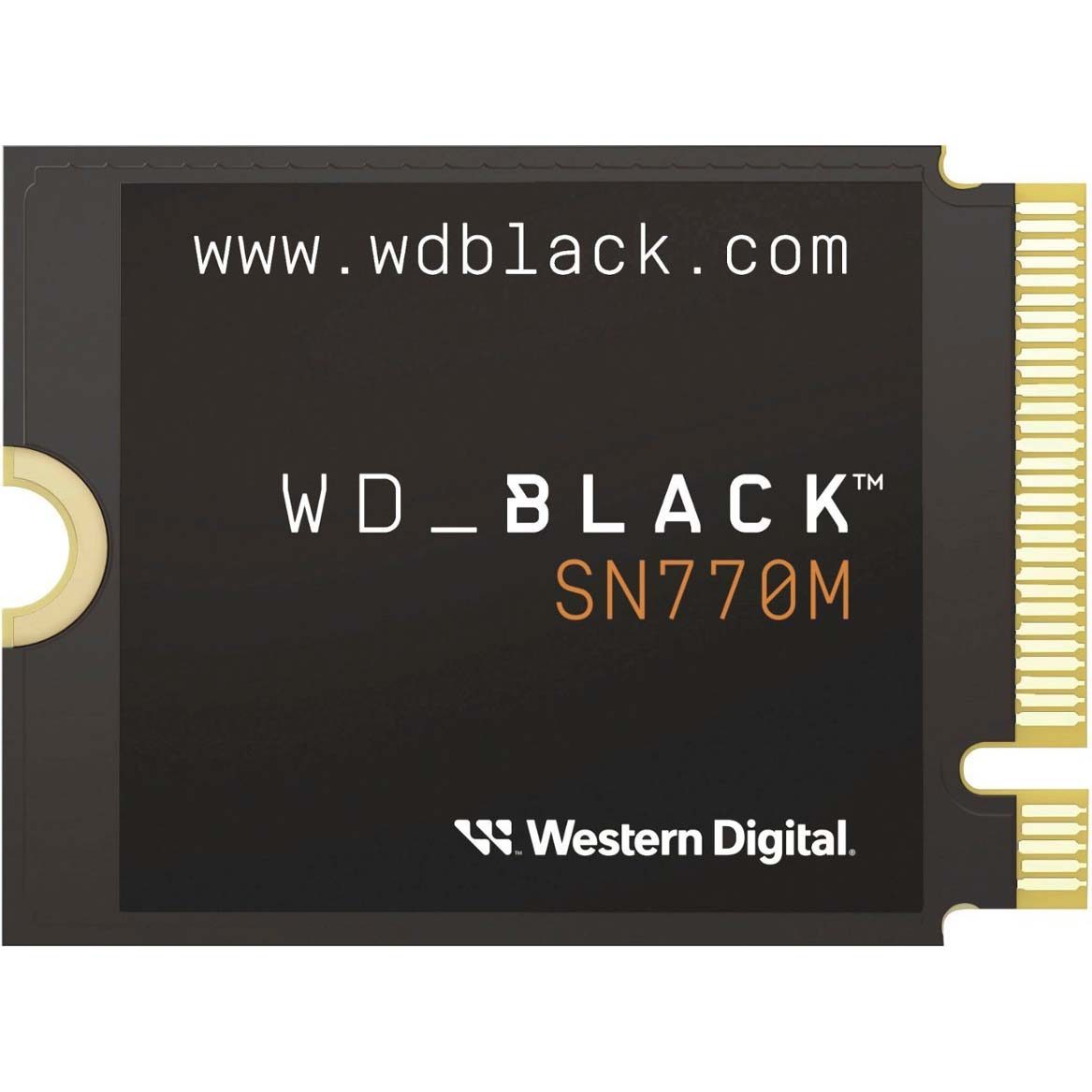
Increase the internal SSD storage space of your compatible gaming handheld with this upgrade that can reach fast read speeds up to 5,150 MB/s. You'll need to open your device, remove the original SSD, and then install this one in its place. This is a great product, and Western Digital has even provided an official video showing how to install the SSD into the ROG Ally.

Self-professed gaming geek Rebecca Spear is one of Windows Central's editors and reviewers with a focus on gaming handhelds, mini PCs, PC gaming, and laptops. When she isn't checking out the latest games on Xbox Game Pass, PC, ROG Ally, or Steam Deck; she can be found digital drawing with a Wacom tablet. She's written thousands of articles with everything from editorials, reviews, previews, features, previews, and hardware reviews over the last few years. If you need information about anything gaming-related, her articles can help you out. She also loves testing game accessories and any new tech on the market. You can follow her @rrspear on X (formerly Twitter).
